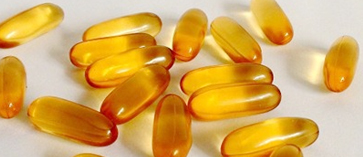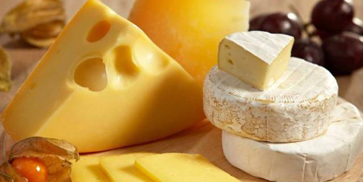Minerals
Minerals
The Torah ascribes tremendous bounty to Eretz Yisroel, bestowing upon it a generous measure of natural resources and agricultural lushness. The Ramban notes that while the qualities and resources ascribed to Eretz Yisroel do not seem to encompass everything that one would consider important, the Torah is also teaching us that everything that is truly important is indeed part of Eretz Yisroel . With this in mind, we should note that among its endowments is iron, and the Kashrus issues relating to it and other minerals are the subject of this discussion.
Iron plays a critical role in human physiology. The body uses the iron in red blood cells as a means of conveying oxygen to cells in the body. As blood passes through the lungs, oxygen attaches itself to this iron, forming an oxygenated iron. As this oxygenated blood is pumped to cells throughout the body, the oxygen needed by the cell is absorbed by the cells and oxygen molecule replaced with carbon dioxide. This blood is then returned to the lungs, through which the carbon dioxide is expelled and replaced with fresh oxygen. An adequate amount of iron in the body is essential for this critical cycle to function properly, and must, therefore, constantly be replenished through the food we eat. Various types of anemia , a disease whereby this oxygen transfer is disrupted, have been noted. Some types of anemia are caused by an inadequate amount of iron in the blood and can be treated by adding iron to the diet. Early physicians prescribed liver to treat anemia, and indeed, including liver in one's diet will indeed address this form of the disease. Nutritionists note, however, that since iron is most readily absorbed when it is reacted with an acid into a salt and it is, therefore, a good idea to eat some type of citrus fruit or tomato with chopped liver, since this aids in the absorption of this iron-rich food. When preparing mineral supplements, however, desiccated (dried) liver is commonly used as a source of iron. Such material poses significant Kashrus issues, and should only be taken in consultation with a Rav . Other compounds based upon metallic iron, however, are often suitable to treat this condition and pose no Kashrus concerns. Ferrous fumarate and ferrous sulfate are commonly used iron supplements, and are routinely added to a variety of fortified foods, such as breakfast cereals. They are made by reacting metallic iron with an acid ( e.g. fumaric acid or sulfuric acid) to create an iron salt. Neither of these poses an inherent Kashrus concern. However, such iron compounds do not have a pleasant taste and would tend to impart an objectionable taste to foods. In order to resolve this concern, the iron particles can be encapsulated in gelatin, oil, or gums that allow it to be swallowed before the coating falls off. It is the Kashrus of these coatings that must be verified in order to ensure a Kosher product. [Please note that not all types of anemia can be treated by simple iron fortification. A specific type called pernicious anemia requires the use of a special source of Vitamin B 12 called the intrinsic factor , which can only be found in humans and pigs. Generally, this disease is life threatening, and the use of otherwise forbidden items would be a Mitzvah in such cases.]

This process of treating a mineral with an acid is called chelation , and is used to prepare many other minerals that are necessary for proper human nutrition. Trace minerals, such as zinc and copper, are often treated with gluconic acid to produce zinc and copper gluconates , respectively. The potential Kashrus concern with these products stems from the fact that, after being reacted in a liquid state, they are spray dried into a powder. The spray dryers , as these pieces of equipment are called, can also be used to process Dairy and non-Kosher products, and it is important to ensure that Kosher mineral preparations are processed on Kosher equipment.
Another interesting Kashrus issue involves a new source of dietary calcium phosphates. Whey , a byproduct of cheese manufacture, contains protein, lactose, and minerals. Often, the protein is concentrated to produce a product called whey protein concentrate (WPC), after which the lactose is also recovered. The remaining minerals - primarily tri-calcium phosphate - are then dried and sold for use in a variety of applications. Tri-calcium phosphate had historically been derived from mined mineral deposits, and was considered free of Kashrus concerns. Whey requires a reliable Kosher certification, and the availability of tri-calcium phosphate derived from whey raises both dairy and Kashrus concerns with respect to this mineral complex.

Calcium is another mineral that has been the subject of several Kashrus concerns. The recent medical interest in the role of calcium supplements and osteoporosis has created a large market for calcium supplements, which use various types of calcium salts as their active ingredients. Calcium carbonate is the active ingredient in many antacid products, and as a mined mineral poses no significant Kashrus issues. Calcium citrate is produced by reacting calcium carbonate with citric acid, and is more easily absorbed into the body. The Kashrus status of this product also depends on the status of the citric acid. Calcium carbonate, however, may also be derived from oyster shells, raising the question of its Kashrus status. Many authorities have concluded that despite the fact that oysters are not Kosher, the hard shell that encases them is not forbidden. It should be noted, however, that permissibility of hard shells might not extend to substances derived from other types of shells. Chitin , a polysaccharide that is found in abundance in the soft shells of shrimp, crabs, and other shellfish, is used in popular diet preparations due to its claimed ability to prevent the absorption of dietary fat. When converted into a chemical called glucosamine , it is used as a treatment for arthritis. While these products do indeed come from a "shell", not all shells are created equal. In contrast to oyster shell, soft shells are actually exoskeletons and may indeed exhibit the flavor of the non-Kosher fish, and may often be eaten.
It is important to note that Kashrus concerns for any mineral preparation are not limited to the active ingredient. For example, calcium carbonate tablets are often used as an antacid and a calcium supplement. Although the active ingredient may pose no concern, it may also include lactose, magnesium stearate, and flavorings as inactive ingredients, all of which require reliable Kosher certification.
In Tehillim ) 102 :15 ) , Dovid Hamelech gives voice to the tragedy of the destruction of the Bais Hamikdash that we commemorate during this season. Yet, while he laments all that has been lost, he takes solace in the observation that " For your s ervants have cherished its stones, and favored her dust". While we have clearly seen that many of the stones and its minerals are of great physical benefit to us, it is our fervent prayer that we should merit the spiritual nourishment inherent in our land with our imminent redemption in Eretz Yisroel .
